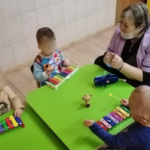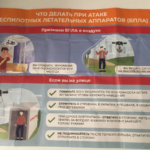Entrance is free, exit is hundred rubles

Among the diversity of opinions about the problem of possible reparations from Russia in favor of Ukraine, that suffered from aggression, as well as in favor of the colonial constituents of the Russian Federation (the indigenous peoples of autonomous entities) robbed by Moscow, the prevailing opinion is that Moscow is presumptively guilty and it must pay! Both Ukraine and the national entities of the indigenous peoples (when they can gain sovereignty). It is a pleasure to read such statements, but part of the problem of joint responsibility of the indigenous peoples who took part in the aggression against Ukraine remains unexplained. After all, Putin tried to spread the degree of “being stained in the war and blood” in an even layer on all nations, and he succeeded well in this. What the picture of the joint responsibility of the indigenous peoples of the Russian Federation will ultimately be can only be guessed with varying degrees of reasoning and closeness to reality.
The criterion of truth is practice, and historical science offers us a variety of examples of solving the indemnities and reparations issue – from fair (with Nazi Germany) to outrageous ones. For example, Napoleon’s indemnities: he greatly robbed or oppressed all the conquered countries (Holland, Prussia and others). More than twenty indemnities amounting to 535 million francs. But this habit cost him dearly: when Napoleon began to lose, the anti-Napoleonic coalition counted about 700 million francs to France, and it was also necessary to maintain the 150,000 allied occupation army (plus 150 million francs annually).
It is too early to say what will happen if Russia loses; that is a long way off. And this is not just a matter of military success or failure of the Russian Federation. Reparations (indemnities) can be imposed on a country and force it to pay even if the conflict is frozen, and even after its nominal victory. By “nominal” I mean a situation when the “winning” country gets in international economic and political isolation, and here it is more expensive for it to refuse payments in favor of the victim country!
In this situation, the burden of payments also falls on the indigenous peoples who participated in the aggression. The bitter fate falls to them – to survive and overcome their own demographic losses, suffered against their will during the military actions, and then still pay the victim of aggression for the damage caused.
But that is not all! The indigenous peoples are taking on another heavy, previously unmentioned burden. And here one will not be able to exclaim indignantly, “The Russians should pay reparations!” But it turns out that they should not! All Russian citizens are paying (already today) and will probably continue to do so. Frozen assets of the Russian Federation in the West – do they belong only to Russians? I am talking about those USD 350 billion held in Western banks. At the moment, the possibility of their confiscation in favor of Ukraine is already being discussed in detail! You and I all made contributions to these “state piggy banks”, part of our labor and our well-being was taken from us for these “funds for future generations”, “development funds”… and what was the result? We were simply robbed of our money for the war that no one needed! Who is fighting in this war? First of all, the national republics send people, perform various types of duties in favor of the Ukrainian cities we destroyed, that became part of Russia? What is the point of this? What benefit do we get from this?
The thorny road to national freedom and statehood can also conceal such unpleasant surprises. The international community can hardly be accused of bias when it presents its arguments regarding the fairness of contributions for the restoration of Ukraine from constituent entities comprising the Russian Federation such as Tatarstan or Bashkortostan… “Here are the documents confirming participation in the aggressive war: the number of Tatars/Bashkorts , who fought in the Armed Forces of the Russian Federation (of which so many were volunteers), here are the results of consideration of the war issues in the national parliaments of the republics, here are the amounts allocated for the conduct of the war, here is an examination of a cross-section of public opinion at the time of entry into the war…”, etc., etc.
It is difficult for us to predict how and where the wind of change will blow in the future, but one thing is clear: all of us, citizens of the national republics of the Russian Federation, can hardly count on a painless exit from the war and on being freed from responsibility for participating in it – in the event of unfavorable developments events for the Russian Federation. The moment has already passed! Or do you think differently?


Leave a Reply